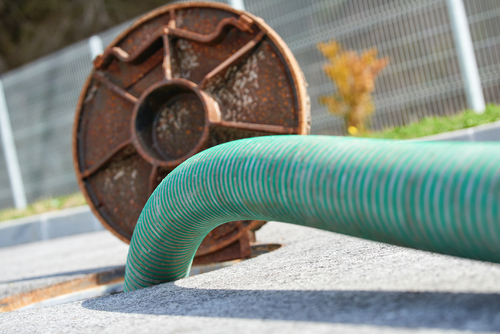
Sewer sludge, or biosolids, is a byproduct of the wastewater treatment process that is often overlooked when it comes to environmental impact. Many people are unaware of the benefits of properly disposing of sewer sludge and the positive effects it can have on the environment. In this article, we will explore the environmental benefits of sewer sludge disposal and the importance of responsibly managing this waste product.
1. Reduction of Greenhouse Gas Emissions
One of the key environmental benefits of sewer sludge disposal is the reduction of greenhouse gas emissions. When sewer sludge is landfilled or incinerated, it can release harmful methane gas into the atmosphere, contributing to climate change. However, when sewer sludge is properly treated and applied to land as a soil amendment, it can actually help sequester carbon and reduce greenhouse gas emissions. This process, known as carbon sequestration, can help mitigate the impacts of climate change and promote sustainable land management practices.
2. Soil Improvement and Nutrient Recycling
Sewer sludge is rich in nutrients that are beneficial for soil health and plant growth. By applying sewer sludge to agricultural land as a fertilizer or soil amendment, we can help replenish nutrients that are essential for crop production. This reduces the need for synthetic fertilizers, which can be harmful to the environment and contribute to water pollution. Additionally, sewer sludge contains organic matter that can improve soil structure and water retention, making soils more resilient to drought and erosion.
3. Landfill Diversion and Resource Recovery
Properly disposing of sewer sludge through beneficial use applications, such as land application or composting, helps divert waste from landfills and incinerators. By finding value in this waste product and turning it into a resource, we can reduce the burden on landfills and minimize the environmental impacts associated with waste disposal. Additionally, by recovering valuable nutrients and organic matter from sewer sludge, we can create a closed-loop system that promotes resource conservation and sustainability.
4. Energy Recovery and Renewable Energy Generation
Another environmental benefit of sewer sludge disposal is the potential for energy recovery and renewable energy generation. Sewer sludge can be converted into biogas through anaerobic digestion, a process that breaks down organic matter in the absence of oxygen to produce methane gas. This biogas can be used as a renewable energy source for heating, electricity generation, or vehicle fuel. By harnessing the energy potential of sewer sludge, we can reduce our reliance on fossil fuels and promote the transition to a low-carbon economy.
5. Water Quality Protection and Pollution Prevention
Properly managing sewer sludge is essential for protecting water quality and preventing pollution of our waterways. When sewer sludge is not properly treated or disposed of, it can release harmful contaminants, pathogens, and nutrients into the environment, posing risks to human health and ecosystems. By implementing best management practices for sewer sludge disposal, such as treatment, monitoring, and regulation, we can minimize the impacts on water quality and prevent pollution of our rivers, lakes, and oceans.
Summary
Sewer sludge disposal plays a crucial role in maintaining environmental health and sustainability. By recognizing the environmental benefits of sewer sludge disposal and implementing responsible management practices, we can minimize our impact on the environment, reduce greenhouse gas emissions, improve soil health, conserve resources, and protect water quality. It is important for policymakers, industry stakeholders, and communities to work together to promote sustainable solutions for managing sewer sludge and harnessing its potential for environmental benefit. By doing so, we can create a more sustainable and resilient future for generations to come.
Need Septic Contractors in Bethel, OH?
Gullett Sanitation Services, Inc. offers mobile de-watering of sludge and slurries in and around Bethel, OH, utilizing Roediger belt filter presses, as well as services and repairs on all major brands of home aeration systems. We also work with jet aeration and cleaning for sewer system lines (up to 8 inches in diameter), permits and consultation for biosolids, the transportation of non-hazardous wastewater, sludge removal from all types of waste lagoons, service and repairs on residential sewer systems, and the removal of grit, rags, and debris from anaerobic or aerobic digesters. Give us a call today and let us be your septic and dewatering service in Ohio!
